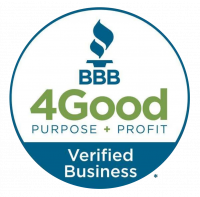Suicide & Homicide Cleanup Services in Scottsdale, AZ, Greater Phoenix Area and the Entire State of Arizona
The loss of a loved one to suicide is an unimaginable tragedy that affects families deeply. Beyond the emotional devastation, survivors often face the overwhelming prospect of cleaning up themselves. There are professional suicide cleanup services that exist to remove this burden during your darkest hours, allowing you to focus on healing and grieving rather than confronting traumatic reminders.
If you’re in crisis right now — whether you're having suicidal thoughts or struggling after being affected by suicide — please know that you are not alone, and help is available immediately. We've listed support resources below that offer assistance both to those in crisis and to people impacted by suicide.
If you’re feeling stable at this time and are looking for information about our cleanup services, please continue to the next section.
Get Help Now
Suicide & Crisis Lifeline provides 24/7, free and confidential support for people in distress. Just dial or text 988 to speak with a live person who will get you the help you need.
La Frontera EMPACT – Suicide Prevention Center offers 24/7 comprehensive crisis and behavioral health services, including free support for those affected by suicide with their Trauma Healing Services (THS) Program. - or by calling them at 480-736-4949
Counselors and Community Resources for Arizona
You are not alone. Whether you need immediate crisis support, ongoing counseling, or community connection, Arizona’s network of professionals and organizations is here to help at every step with community resources dedicated to suicide prevention, crisis intervention, and mental health support.
Additional immediate support options
Statewide Crisis Line: 1-844-534-HOPE (4673) — connects to local crisis services anywhere in Arizona.
Teen Lifeline: Call or text 602-248-TEEN (8336) for teen-specific support.
Veterans Crisis Line: Dial 988, then press 1 for veteran support.

What You May Not Know About Suicide Cleanup
Health Risks of Delayed Cleanup
Blood and bodily fluids are not only painful reminders of a traumatic event—they can also carry infectious pathogens such as Hepatitis B, Hepatitis C, and HIV. According to the Centers for Disease Control and Prevention (CDC), these pathogens can remain infectious for days or even weeks if they are not properly cleaned, creating serious health risks for anyone who comes into contact with them.
Beyond the emotional weight, biohazardous materials can quickly become breeding grounds for bacteria and other dangerous contaminants. This is why the CDC stresses the importance of prompt, professional cleaning—not just to restore safety to the environment, but to protect the well-being of everyone who enters it.
At T.A.C.T., we approach every situation with compassion and respect, understanding that behind every cleanup there are people who are grieving, healing, and trying to move forward. Our role is to carry the burden of making the space safe again, so you and your loved ones don’t have to.
Psychological and Emotional Impact
Traumatic scenes can take a heavy toll on anyone, especially when they involve someone you love. At T.A.C.T. 48, we believe that your final memories of a loved one should never be tied to the painful task of cleaning up after a tragedy. Our team was founded on compassion and professionalism, stepping in to handle the most difficult moments with care and discretion. By trusting a professional biohazard remediation company, you not only protect your emotional well-being—you also ensure the scene is cleaned quickly, safely, and thoroughly. This allows you to focus on healing and supporting those who matter most, while we take care of the rest.
According to the National Institute of Mental Health (NIMH), in 2023 alone, 12.8 million adults in the U.S. experienced serious thoughts of suicide, and 1.5 million made an attempt. These numbers are a sobering reminder of just how critical support, awareness, and compassionate response truly are.
Property Damage and Financial Consequences
Delaying cleanup can make things worse: When bodily fluids seep into porous materials such as wood, drywall, or concrete, they can cause permanent staining, structural deterioration, mold growth, and expensive repairs. The CDC warns that the longer contamination is left untreated, the more severe—and costly—the damage becomes.
Odors grow stronger with time: As biological materials break down, they release powerful, lingering odors that can render a home or property unlivable while also adding to the emotional pain of those already affected.
Legal and Regulatory Considerations
There are also important legal responsibilities when it comes to handling biohazardous materials. Both the CDC and state health departments require that these materials be cleaned and disposed of following strict safety regulations. These guidelines are in place not only to protect public health but also to safeguard families and communities from further harm. Failing to follow them can lead to costly fines or legal consequences, which is why it is essential to rely on trained professionals, like T.A.C.T. 48, who understand and adhere to these standards.
OSHA Bloodborne Pathogens Standard (29 CFR 1910.1030)
When cleaning biohazardous materials, professional companies must follow strict safety regulations designed to protect both workers and the public. These standards require the use of personal protective equipment (PPE), specialized employee training, detailed exposure control plans, and precise cleaning procedures to ensure every site is restored safely and thoroughly.
OSHA Bloodborne Pathogens Standard (29 CFR 1910.1030)
EPA Medical Waste Management
The EPA regulates the treatment, storage, and disposal of medical and infectious waste, including requirements for packaging, labeling, and the use of EPA-registered disinfectants.
EPA Medical Waste Management - Frequent Questions4
Managing and Tracking Medical Wastes: A Guide to the Federal Program for Generators5
CDC Guidelines for Environmental Infection Control
Additionally, the CDC outlines standards for the proper cleaning and disinfection of environments that are contaminated with blood, emphasizing thorough decontamination and infection prevention.
CDC Guidelines for Environmental Infection Control in Health-Care Facilities (MMWR)6
T.A.C.T. 48 Suicide Cleanup Services
Comprehensive Biohazard Removal
- Safe removal of all biological materials including blood, bodily fluids, and tissue
- Proper handling and disposal of contaminated items in full compliance with federal and state regulations
- Complete decontamination of affected areas using hospital-grade, EPA-approved disinfectants
Odor Elimination and Air Purification
- Advanced odor removal methods to fully eliminate lingering smells
- Use of professional air purification systems to restore a clean, breathable environment
- Specialized treatment of porous materials (such as carpet, drywall, and subflooring) that may have absorbed contaminants
Remediation Services
- Careful cleaning of salvageable personal belongings with respect and discretion
- Professional evaluation to determine what can be safely remediated versus what must be replaced
- Full remediation of the affected space to its pre-incident condition, ensuring safety, comfort, and peace of mind


T.A.C.T. 48's Professional Cleanup Process
-
No-Cost Initial Assessment & Planning
-
Every situation begins with care and understanding. Our certified technicians provide a no-cost, detailed assessment of the affected area to determine the level of contamination and design a tailored cleanup plan that addresses both safety and remediation. -
Strict Safety Protocols
To protect everyone involved, our team follows industry-leading safety procedures, including:
-
-
- Use of full personal protective equipment (PPE), such as hazmat suits, gloves, and respiratory protection
- Containment of the affected area to prevent cross-contamination
- Proper ventilation and advanced air filtration systems
- Use of full personal protective equipment (PPE), such as hazmat suits, gloves, and respiratory protection
-
-
Comprehensive Decontamination and Sanitization
We go beyond surface cleaning to ensure your property is safe:
-
-
- Removal of all visible and non-visible biological materials
- Deep cleaning with hospital-grade disinfectants
- Treatment and, when necessary, removal of porous materials like carpeting, drywall, and subflooring
- Removal of all visible and non-visible biological materials
-
-
Final Inspection and Certification
Our work is not complete until the environment is fully restored:
- A detailed inspection confirms complete decontamination
- Clearance testing provided when required
- Full documentation for insurance and your peace of mind
-
Insurance and Cost Considerations
In most cases, homeowner’s insurance covers the cost of suicide cleanup, though details vary by provider. To ease the burden, we:
- File claims on your behalf
- Provide thorough documentation and estimates
- Manage all necessary paperwork during this difficult time
- File claims on your behalf
Why Choose T.A.C.T: 48 suicide cleanup services?
Discreet Biohazard Cleanup Services
24/7 Emergency Biohazard Cleanup Services
Specialized Equipment & Certified Biohazard Training
Arizona-Based Biohazard Cleanup Experts with Local Knowledge
Additional community resources dedicated to suicide prevention
Mental Health & Substance Use Crisis Hotline for Maricopa, Pinal, Gila Counties
1-800-631-1314
AHCCCS Crisis Hotline for Pima, Cochise, Santa Cruz, Graham, Greenlee, La Paz, Yuma
1-866-495-6735
AHCCCS Crisis Hotline For Coconino, Mohave, Navajo, Yavapai
1-877-756-4090
Tribal Nations
See county-specific lines and tribal contacts on the behavioral health section of the Arizona health care cost containment system
Counseling Services and Therapists
Suicidal Ideation Therapists: Find licensed therapists specializing in suicide prevention and crisis counseling in Arizona
NAMI Arizona: Provides support groups, education, and resources for individuals and families facing mental health challenges. Phone: (602) 244-8166.
Mental Health Association of Arizona: Connects individuals to mental health resources, education, and suicide prevention. Phone: (480) 982-5305.
Counseling Services and Therapists
Suicidal Ideation Therapists: Find licensed therapists specializing in suicide prevention and crisis counseling in Arizona
NAMI Arizona: Provides support groups, education, and resources for individuals and families facing mental health challenges. Phone: (602) 244-8166.
Mental Health Association of Arizona: Connects individuals to mental health resources, education, and suicide prevention. Phone: (480) 982-5305.





